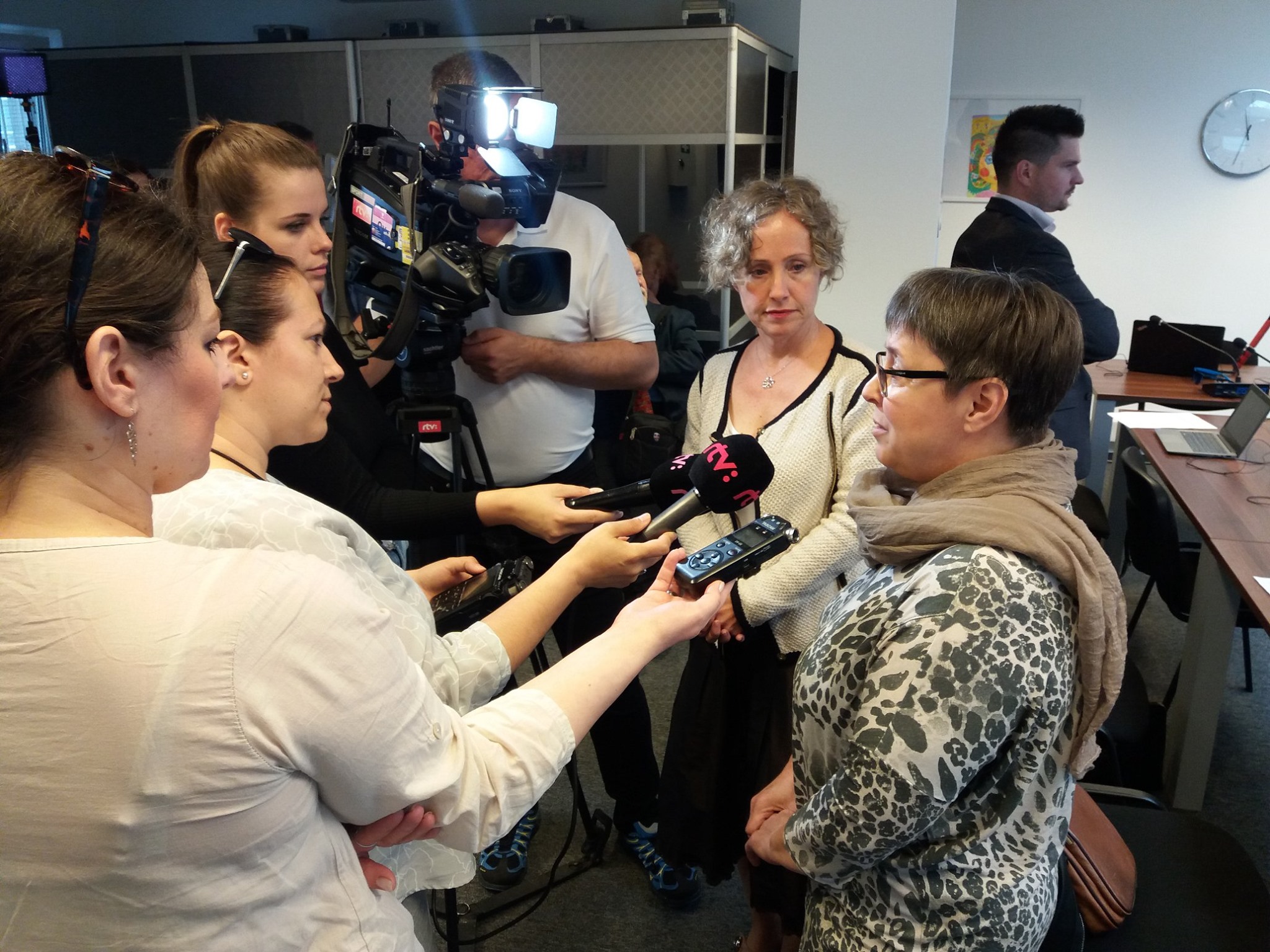V4 ombudspersons meet in Bratislava - NJBH-EN
null V4 ombudspersons meet in Bratislava
Upon the invitation of Mária Patakyová Prof. Slovak Ombudsman (Verejná ochrankyňa práv) on 29-31 May 2019 the ombudsperons of the V4 countries met in the capital of Slovakia. The event was attended by Anna Šabatová, Czech Ombudsman, Stanisław Trociuk, Deputy Ombudsman of Poland as well as the Ombudsman for the Rights of Minorities in Hungary and the Ombudsman for Future Generations, and their staff members.
V4 ombudsmen have been meeting regularly since 2004 to discuss the current situation and challenges of protecting fundamental rights. The topics of this year included the following:
- educational segregation trends and opportunities for desegregation;
- child protection systems and foster parents
- homelessness and the right to housing;
- damage caused by administrative law.

The participants adopted the following memorandum:
V4 PUBLIC DEFENDERS OF RIGHTS’ MEETING
29. – 31. May 2019
Bratislava
During their meeting in Bratislava on the 29. – 31. May 2019, the Public defenders of rights of the V4 countries agreed on the following memorandum:
At the event of the 30th anniversary of the Convention of the Rights of a Child, they point out at the necessity to respect the child´s best interest in all matters which concern him/her. This is especially important when it comes to foster care. It is the right of every child to grow up in a family, regardless of their social origin or medical disabilities. When searching for a new foster family, it is important to emphasise not only the need to respect the rights of persons who decided to look after the child, but also the need to respect the fundamental freedoms and rights of the child itself since “We want to find a family for a child and not a child for a family.“
The right to education is equally important in a child´s life. The ombudsmen emphasise that access to good quality education is not only a constitutional right but it also forms the basis for future economic success and prosperity of the individuals in question as well as for society as a whole. For children who come from socially disadvantaged environment, it is also a way to lift themselves out of the cycle of generational poverty. It is, therefore, necessary for the ombudsmen to make all the efforts to ensure that the conditions to reach equal opportunities and accessibility of the education system to all children regardless of their nationality, ethnicity and life conditions are implemented into practice.